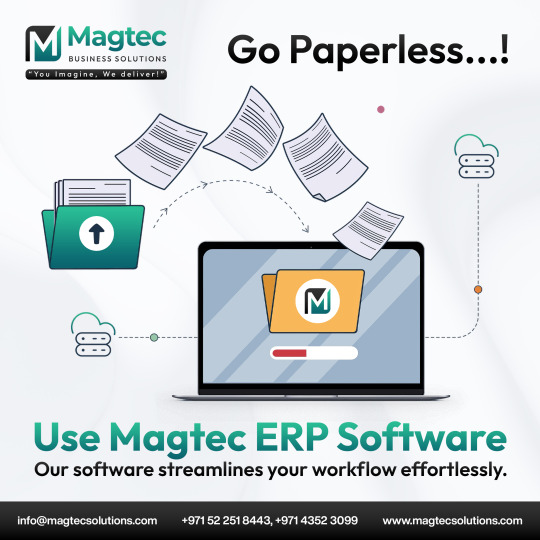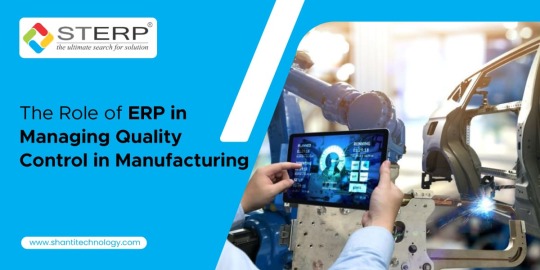#resource planning software
Explore tagged Tumblr posts
Text
The Future of Workforce Strategy with AI-Driven Resource Planning

The way organisations plan and manage their workforce is undergoing a seismic shift. As businesses face increasing pressure to deliver faster, adapt to change, and manage distributed teams, traditional resource planning methods are falling short. Spreadsheets and static systems simply can't keep up with the complexity of modern project environments.
That’s where AI-driven resource planning comes in—not just as a trend, but as the future of effective workforce strategy.
Why Traditional Planning No Longer Works
Workforce planning has often been viewed as a logistical function—matching available people to upcoming work. But in today’s dynamic landscape, this reactive approach leads to:
Mismatched skills and projects
Overbooked or underutilised resources
Missed delivery timelines
Lower employee satisfaction and retention
Organisations need to plan smarter, not harder. And that starts with embracing AI.
What AI Brings to Resource Planning
AI-driven resource planning transforms how organisations think about their talent. By leveraging large volumes of real-time and historical data, AI can:
Forecast future demand for skills and roles
Recommend optimal resource allocation across projects
Detect potential bottlenecks and suggest corrective actions
Learn from past project outcomes to improve future planning
It’s not just automation—it’s intelligent decision-making that adapts with your business.
From Reactive to Predictive Workforce Strategy
One of the most powerful benefits of AI in resource planning software is predictive insight. Rather than waiting for a problem to surface (like an overloaded team or missed deadline), AI tools can forecast risks and alert managers ahead of time.
For example, if two critical resources are scheduled for overlapping projects, the system can flag it, suggest alternative allocations, or even adjust timelines automatically. This kind of foresight allows leaders to take proactive measures and protect project success.
Driving Better Utilisation and Cost Control
AI-powered planning tools optimise resource utilisation by ensuring the right people are assigned to the right projects—based on skills, availability, location, and even past performance. This reduces bench time, controls costs, and ensures that teams aren’t stretched too thin or left idle.
For organisations managing large, complex portfolios, this level of precision can translate into significant gains in both efficiency and profitability.
Empowering Strategic Talent Decisions
Beyond day-to-day planning, AI can also shape long-term workforce strategy. By analysing project pipelines and capacity trends, it can highlight upcoming skill gaps, recommend training programs, or support hiring decisions.
In other words, AI doesn’t just help manage the workforce—it helps build a future-ready one.
The Human Element Still Matters
While AI brings speed and intelligence, it’s not a replacement for human judgment. It’s a partner—supporting planners and leaders with real-time recommendations, freeing them to focus on mentoring, innovation, and strategic decision-making.
Final Thoughts
The future of workforce strategy is agile, predictive, and AI-driven. As the complexity of work increases, organisations that adopt intelligent resource planning tools will be better equipped to deliver value, engage talent, and stay competitive.
0 notes
Text
Best ERP software provider in India | shantitechnology
Shantitechnology (STERP) is a leading ERP software company in Chennai, offering specialized ERP for manufacturing companies in India. Trusted ERP solution providers delivering robust manufacturing enterprise resource planning systems. As the best ERP software provider in India, we deliver scalable solutions tailored to streamline operations. Recognized as a top manufacturing ERP software company in Chennai, STERP empowers industries with real-time data and automation.
Choose our ERP for manufacturing company in India to enhance productivity and growth.
#Manufacturing ERP software company in Chennai#ERP software company in Chennai#Chennai#ERP solution providers in Chennai#Best ERP software provider in India#India#Manufacturing enterprise resource planning#ERP for manufacturing company in India
4 notes
·
View notes
Text

Tired of paper piles? 🚫 Go paperless with Magtec ERP Software! 💻 Streamline your workflow and boost efficiency. It's time to embrace the digital future.
#erp#business#software#management#automation#enterprise#resources#planning#solution#system#cloud#industry#finance#accounting#supplychain#inventory#crm#hr#manufacturing#distribution#retail#healthcare#education#hospitality#smallbusiness#mediumenterprise#largeenterprise#magtecerp#magtec#magtecsolutions
3 notes
·
View notes
Text
Hiring Now HR General

https://bhartihr.com/job-details.php/hr-generalist Immediate Hiring Hr Generalist (Female Only). Work Location - Lucknow, Salary - 30-40k PM, Interested Candidates send Their Resume At- [email protected] Call & WhatsApp - 8188998866, 9984703333 Visit: www.bhartihr.com
#job#jobs#jobsearch#best jobs#job interview#career#lucknow#jobs from home#best hr company#hr management#hr services#hr software#hrnygirl#recruitment#career advice#human resources#employment#human resource planning#artificial intelligence#human resource training#payroll#salary negotiation
7 notes
·
View notes
Text
Get Organized: ERPNext Distribution by Sigzen Makes It Easy
In today’s fast-paced Running a business can be tough, especially when things get messy. But what if there was a way to make it all simpler. That’s where ERPNext Distribution comes in. This awesome tool helps you manage your stuff like inventory, deliveries, and ordering without any hassle. It’s like having a helper for your business tasks. With ERPNext Distribution, you can say goodbye to…

View On WordPress
#Business Automation#ERP Integration#ERP Software Solutions#Inventory Management System#Procurement Management#Resource Planning#Stock Control#Workflow Optimization
2 notes
·
View notes
Text
Cloud-First and Hybrid ERP Deployments: The Future of Scalable Business Operations in India

In today’s fast-paced digital landscape, businesses are rapidly embracing modern enterprise technologies to stay competitive and agile. One of the most transformative shifts in recent years is the move toward Cloud-First and Hybrid ERP deployments. This evolution in ERP implementation is not just a trend — it’s a strategic imperative for businesses aiming for growth, scalability, and efficiency.
Why Cloud-First ERP is Becoming the New Standard
Cloud-First ERP refers to an approach where companies prioritize deploying their ERP systems on cloud infrastructure from the outset. This model allows businesses to:
Scale resources on-demand without heavy hardware investments
Access real-time data from anywhere, enabling faster decision-making
Reduce IT maintenance costs, as vendors handle updates and security patches
Improve disaster recovery and data backup capabilities
In India, where small and mid-sized enterprises (SMEs) are rapidly digitalizing, a Cloud-First approach enables these businesses to gain enterprise-level functionality at a fraction of the cost.
Understanding Hybrid ERP: A Flexible Middle Ground
While cloud ERP offers many advantages, some organizations — especially those in highly regulated industries — still require on-premise control for specific operations. Hybrid ERP solutions allow companies to:
Keep sensitive modules on-premise while leveraging the cloud for others
Integrate legacy systems with newer cloud technologies
Maintain compliance with local data regulations
Enhance operational flexibility across multi-location enterprises
This makes Hybrid ERP particularly attractive to large Indian manufacturing firms and global exporters, who often need to balance local compliance with global connectivity.
The Rise of Hybrid ERP in the Manufacturing Sector
The Best ERP Software for Manufacturing Industry is increasingly taking a hybrid route to accommodate real-time shop floor monitoring, supply chain optimization, and smart analytics. Hybrid deployments give manufacturers the control they need on the ground while supporting strategic insights through cloud-powered dashboards.
Indian manufacturers benefit from:
Predictive analytics for inventory planning
Cloud-enabled supplier collaboration
IoT integrations for real-time data collection
When integrated effectively, Hybrid ERP creates a seamless bridge between production and planning, supporting lean operations and reducing waste.
Choosing the Right Partner for Cloud and Hybrid ERP
If you’re exploring digital transformation in India, working with the best ERP software company India has to offer is crucial. Look for partners with:
A strong track record in cloud migrations
Deep domain expertise across industries
Scalable deployment options (public, private, or hybrid)
Robust post-implementation support and training
An experienced ERP provider ensures minimal disruption during migration and helps align ERP functionality with your unique business processes.
Final Thoughts: Smart ERP Deployment is a Strategic Advantage
The shift to Cloud-First and Hybrid ERP is not just about technology — it’s about future-proofing your business. Indian enterprises that embrace these models are better equipped to innovate, respond to market shifts, and scale rapidly.
Whether you’re a fast-growing SME or a large manufacturer, investing in the Best ERP Solutions in India can accelerate your operational efficiency and drive long-term value.
0 notes
Text
The Best Budgeting and Scheduling Tools That Won’t Eat Your Budget
Budgeting and scheduling are often the most dreaded parts of indie filmmaking. They’re not glamorous, they’re not fun, and they’re definitely not why you got into this industry. But they are the difference between a shoot that gets finished and a shoot that gets shut down. The good news? You don’t need a $1,200-a-year software subscription or a studio accountant to do it well. There’s now a…
#Budget Templates#Celtx#Cost Management#DIY Filmmaking#Film Budgeting#Filmmaker Resources#Indie Filmmaking#Low-Budget Tools#Pre-Production Strategy#Production Planning#Production Scheduling#Scheduling Software#StudioBinder
0 notes
Text
Top 10 Myths about ERP Software – Busted

Enterprise Resource Planning (ERP) software has long been the backbone of modern business operations. From finance to supply chain management, ERP systems streamline workflows, enhance visibility, and elevate decision-making with real-time data. Yet, despite its growing ubiquity and technological advancements, ERP software remains shrouded in myths and misconceptions that deter many businesses from leveraging its full potential.
In this blog, we bust the top 10 myths about ERP software — myths that may be keeping your business from thriving in an increasingly digital, data-driven world.
Myth 1: ERP Software Is Only for Large Enterprises
Busted: Scalable ERP Solutions Exist for All Business Sizes
One of the most pervasive myths is that ERP systems are designed solely for large corporations with deep pockets and complex infrastructures. While ERP solutions did originate in the enterprise sphere, today’s market is teeming with cloud ERP systems and modular platforms that cater to small and medium-sized businesses (SMBs).
Modern ERP platforms are scalable, flexible, and designed to grow with your business. Whether you’re a boutique manufacturing firm or a growing SaaS startup, there’s an ERP system that fits your needs without breaking the bank.
Myth 2: ERP Implementation Is Too Expensive
Busted: The ROI of ERP Often Outweighs the Initial Investment
It’s true that implementing an ERP system requires upfront investment. However, this myth ignores the long-term return on investment (ROI) that ERP software delivers. From automation of manual tasks to real-time reporting and reduced operational errors, ERP systems can yield significant cost savings over time.
In fact, cloud-based ERP solutions often come with subscription pricing models, minimizing capital expenditure and offering flexibility as your business evolves.
“A well-implemented ERP system pays for itself — often within the first year.”
Myth 3: ERP Software Is Inflexible and Hard to Customize
Busted: Modern ERP Systems Are Highly Configurable
The notion that ERP software is a rigid, one-size-fits-all solution couldn’t be further from the truth. Today’s ERP platforms offer modular architectures that allow businesses to customize features, dashboards, user roles, and workflows according to their specific needs.
Leading ERP providers offer open APIs, integration tools, and app marketplaces that allow you to tailor your system without extensive custom development.
Myth 4: ERP Systems Are Difficult to Integrate with Existing Software
Busted: Seamless Integration Is Now Standard
ERP software has come a long way in terms of integration capabilities. In the past, compatibility was a genuine concern. But modern ERP systems are designed with interoperability in mind, integrating effortlessly with CRM tools, HR platforms, e-commerce systems, payment gateways, and third-party logistics providers.
With API-first design and plug-and-play connectors, integration is no longer an obstacle; it’s a feature.
Myth 5: ERP Implementation Takes Years
Busted: Implementation Timelines Have Been Dramatically Reduced
ERP implementation used to be a multi-year ordeal, but not anymore. Thanks to cloud deployment, industry-specific templates, and agile methodologies, ERP systems can now be up and running in a matter of weeks or months.
Of course, implementation speed depends on factors such as the system’s complexity, your data readiness, and stakeholder buy-in. But with a strong project management approach, delays are far from inevitable.
Myth 6: ERP Software Is Too Complex for Employees
Busted: Intuitive User Interfaces and Training Simplify Adoption
Many decision-makers shy away from ERP software due to fears that their employees will find it too difficult to use. This myth overlooks the dramatic improvements in ERP UX/UI design over the past decade. Modern platforms emphasize user-centric interfaces, role-based dashboards, and guided workflows.
Moreover, vendors provide comprehensive onboarding, training resources, and customer support, making the learning curve far less steep than presumed.
“With proper user training, ERP becomes a productivity enabler — not a burden.”
Myth 7: ERP Is Only for Specific Industries
Busted: ERP Is Industry-Agnostic and Widely Applicable
While ERP solutions are often associated with manufacturing or retail, they are just as relevant in healthcare, education, logistics, professional services, and even nonprofits. Many vendors offer industry-specific modules tailored to the regulatory, operational, and financial needs of niche sectors.
ERP is not about fitting your business into a mold; it’s about building a system that aligns with your unique goals.
Myth 8: Cloud ERP Is Not Secure
Busted: Cloud ERP Offers Enterprise-Grade Security
Security concerns often deter businesses from choosing cloud-based ERP systems. However, this myth is grounded more in fear than fact. Reputable cloud ERP vendors implement advanced cybersecurity protocols, including encryption, intrusion detection, regular security audits, and compliance with global data standards like GDPR and HIPAA.
Cloud ERP often provides better security than most on-premise systems, especially for businesses lacking a dedicated IT security team.
Myth 9: ERP Software Makes Businesses Less Agile
Busted: ERP Systems Enhance Agility and Decision-Making
Some executives worry that ERP systems impose a rigid structure that stifles creativity and rapid change. In reality, the centralization of data and automation of processes empower businesses to make quicker, data-driven decisions.
ERP platforms are designed to scale, adapt, and evolve, enabling businesses to pivot faster, especially in volatile markets.
“Agility doesn’t come from chaos. It comes from clarity and ERP delivers that.”
Myth 10: ERP Systems Are a One-Time Fix
Busted: ERP Is a Continuous Journey of Optimization
ERP software is not a “set it and forget it” solution. It’s a dynamic platform that requires ongoing refinement, updates, and enhancements as your business grows and market demands evolve.
Top-performing companies treat ERP as an evolving strategy, not a one-time IT project. Regular assessments, user feedback, and vendor consultations ensure your system continues delivering maximum value.
Conclusion
By debunking these ten common myths, we hope to have shown you that ERP software is no longer the intimidating monolith it once was. With scalable pricing, intuitive interfaces, robust integration, and secure cloud deployment, ERP systems have become a cornerstone of modern digital transformation strategies.
Whether you’re a startup or an established enterprise, investing in the right ERP solution could be the smartest move you make this decade.
0 notes
Text
#attendance management software#crm software#hrms software#payroll#software#hrms management#enterprise resource planning
0 notes
Text
https://insteptechnologies.com/service/crm-and-erp-development-services/
#crm development#erp software development#custom crm solutions#enterprise software#business automation tools#sales automation#workflow management#resource planning#crm integration#erp systems
0 notes
Text
Affordable ERP Software Companies in Mumbai: Quality Meets Budget
Finding a reliable yet affordable ERP solution can be a game-changer for businesses looking to scale operations without overspending. Mumbai, being a business hub, is home to several ERP companies that blend affordability with high functionality. Olatech Solution stands out as a top ERP software company in Mumbai, offering budget-friendly solutions without compromising on quality. If you’re looking for the best ERP software company in Mumbai, choosing one with domain expertise, customization, and support services is essential.
1 note
·
View note
Text
The Role of ERP in Managing Quality Control in Manufacturing
In the highly competitive manufacturing sector, maintaining stringent quality control is not just a necessity but a strategic advantage. In a landscape where efficiency and precision define success, integrating ERP for manufacturing companies in India has become a game-changer. The role of manufacturing ERP software in India extends beyond operational management; it plays a pivotal part in ensuring quality control throughout the production lifecycle.

Understanding the Need for Quality Control in Manufacturing
Quality control ensures that products meet predefined standards, adhere to regulations, and satisfy customer expectations. Without effective systems in place, manufacturing companies risk producing defective products, incurring financial losses, and damaging their reputation. This is where manufacturing enterprise resource planning software in India comes into play. By centralizing data and streamlining processes, ERP systems empower manufacturers to monitor, measure, and enhance quality at every stage.
How ERP Facilitates Quality Control in Manufacturing
1. Centralized Data Management
ERP systems consolidate data from various departments into a unified platform. This centralization is crucial for quality control, as it provides real-time access to critical metrics like raw material quality, production processes, and final product evaluations. ERP software companies in India ensure that manufacturers have a single source of truth, enabling faster and more informed decision-making.
2. Automation of Quality Checks
The manufacturing ERP module often includes automated tools for conducting quality checks. By automating repetitive tasks such as inspecting raw materials, testing products, and verifying compliance, ERP reduces human error and enhances efficiency. This capability is particularly valuable for industries with strict quality standards, such as automotive, pharmaceuticals, and electronics.
3. Compliance Management
Staying compliant with industry regulations is non-negotiable for manufacturing companies. ERP systems provide features that help monitor compliance parameters, generate audit reports, and track regulatory changes. ERP software providers in India offer tailored solutions to meet local and global compliance requirements, ensuring seamless operations.
4. Real-Time Analytics and Reporting
Real-time analytics is a cornerstone of modern ERP systems. These tools allow manufacturers to track quality metrics in real-time, identify deviations, and implement corrective actions instantly. The insights gained from these analytics not only improve quality but also drive process optimization.
5. Supply Chain Integration
Quality control begins with raw materials and extends through the supply chain. ERP systems facilitate end-to-end supply chain visibility, enabling manufacturers to assess supplier performance and ensure the quality of incoming materials. Many ERP solution providers in India offer integrated supply chain management modules to support this functionality.
6. Continuous Improvement through Feedback Loops
ERP systems support continuous improvement by capturing and analyzing feedback from quality control processes. This data is invaluable for identifying recurring issues, uncovering root causes, and implementing preventive measures. Top 10 ERP software providers in India have built-in tools for continuous quality enhancement, ensuring sustained excellence.
Benefits of ERP for Quality Control in Manufacturing
Integrating an ERP system offers several tangible benefits for quality control:
Enhanced Traceability: ERP systems provide traceability across the production process, making it easier to track and rectify defects.
Reduced Waste: By identifying inefficiencies and defects early, ERP reduces waste and optimizes resource utilization.
Improved Customer Satisfaction: Consistently delivering high-quality products strengthens customer trust and loyalty.
Cost Savings: Preventing defects and ensuring compliance minimizes the financial risks associated with recalls, fines, and reputational damage.
Choosing the Right ERP Software for Quality Control
Selecting the best ERP solution requires careful consideration of your manufacturing needs. Here are some factors to consider:
Industry-Specific Features: Look for manufacturing ERP software in India that offers modules tailored to your industry.
Scalability: Ensure the ERP system can scale with your business as it grows.
Integration Capabilities: The ERP should integrate seamlessly with your existing systems and technologies.
Vendor Expertise: Collaborate with an ERP software company in India with proven expertise in delivering quality solutions.
Why Indian Manufacturers Need ERP for Quality Control
India's manufacturing sector is poised for growth, driven by initiatives like Make in India and PLI schemes. However, this growth comes with increasing competition and stricter quality expectations. Leveraging ERP software providers in India can give manufacturers the edge they need to thrive in this evolving landscape.
A Trusted Partner for ERP Implementation
With numerous options available, finding the right ERP vendor is crucial. Leading ERP software companies in India offer customized solutions to meet the unique challenges of Indian manufacturers. These providers combine deep industry knowledge with cutting-edge technology to deliver exceptional results.
Shantitechnology: A Trusted Name in ERP Solutions
Shantitechnology, a renowned name among top 10 ERP software providers in India, specializes in delivering robust ERP solutions for manufacturing companies. Our comprehensive manufacturing ERP module is designed to address the intricacies of quality control, ensuring manufacturers achieve excellence with ease.
Conclusion
In the modern manufacturing landscape, quality control is not an isolated function but a core component of operational success. ERP systems empower manufacturers to seamlessly integrate quality control into their workflows, ensuring consistent product excellence. As one of the best ERP software providers in India, Shantitechnology is committed to helping manufacturers navigate the complexities of quality control with innovative ERP solutions. By embracing the right ERP system, Indian manufacturers can enhance their competitive edge, drive customer satisfaction, and achieve sustainable growth.
If you are looking to elevate your quality control processes, partner with a leading ERP software company in India like Shantitechnology. Contact us today to learn more about our customized ERP solutions and how they can transform your manufacturing operations.
#ERP software in India#Top 10 ERP software providers in India#ERP software company in India#Engineering ERP Software company in India#ERP software for engineering companies#Engineering ERP software solution#ERP software for engineering companies in India#ERP software providers in India#ERP software companies in India#ERP solution providers in India#Best ERP software provider in India#ERP for manufacturing company in India#Manufacturing ERP software in India#Manufacturing enterprise resource planning software in India#Manufacturing ERP module
5 notes
·
View notes
Text

Hit the bullseye with the right ERP software! 🎯
Magtec Business Solutions helps you choose the perfect ERP solution to take your business to new heights.
Contact us today for a demo!
#erp#magtec#magtecsolutions#business#solutions#uae#software#technology#growth#success#innovation#digitaltransformation#cloud#enterprise#resources#planning#implementation#consulting#support#customization#integration#automation#efficiency#productivity#cost#savings
2 notes
·
View notes
Text
Walk-in Interview For Hr Executive, Lucknow & Panchkula, salary Upto 30k, Contact Now 8188998899, 9984703333, Email- [email protected].
Visit: www.naukrihunter.com

#job#jobs#jobsearch#best jobs#job interview#career#jobs from home#hrnygirl#lucknow#hr services#hr software#hr solutions#hr management#payroll#humanresources#recruitment#hiring#job hunt#human resource management#human resource planning#human resource information system#human resource training#career company#artificial intelligence#career advice#career opportunities#career services#career center#employment#resume
2 notes
·
View notes
Text
Big Business, Big Benefits: ERPNext Service by Sigzen Technologies
In today’s fast-paced business world, staying ahead is key. It’s all about managing resources efficiently and keeping operations smooth. That’s where ERPNext Service comes in handy. It’s like a toolkit for businesses, helping with finances, inventory, and more. Designed to be a game-changer, ERPNext Service is the driving force behind modern business management. It’s crafted to help businesses…

View On WordPress
#Business Solutions#Efficient Management#Enterprise resource planning#ERPNext Service#Financial Management#Increased Productivity#Integrated Software#Inventory Management
2 notes
·
View notes
Text
How ERP Helps Inventory and Material Management: A Complete Guide
In today’s fast-paced and demand-driven markets, businesses struggle with maintaining accurate inventory levels, minimizing material waste, and optimizing supply chains. ERP inventory management systems provide a robust solution to these challenges. From real-time tracking to intelligent forecasting, ERP transforms how businesses handle inventory and material management.
In this blog, we’ll explore how ERP systems streamline these processes, improve efficiency, and deliver real ROI.
What is ERP and Why is It Crucial?
Enterprise Resource Planning (ERP) is a software system that integrates various business functions — including finance, HR, sales, manufacturing, and especially inventory and material management — into a single centralized platform.
With real-time data sharing and automation, ERP enables companies to manage resources more efficiently, cut costs, and make informed decisions. When integrated ERP with CRM (Customer Relationship Management) solutions are deployed, businesses gain the added benefit of aligning inventory planning with customer demand trends and sales data.
ERP in Inventory Management
Managing inventory without an integrated system often leads to overstocking, stockouts, and poor order fulfillment. Here’s how ERP for inventory management makes a difference:
1. Real-Time Inventory Tracking
Modern ERP inventory tracking provides real-time visibility across warehouses and sales channels. This helps reduce errors, avoid stock discrepancies, and improve order accuracy.
2. Inventory Optimization
ERP systems analyze historical trends, demand forecasts, and lead times to suggest optimal stock levels. This minimizes holding costs and prevents excess or obsolete inventory.
3. Multi-location Management
Whether you operate in one warehouse or a global network, ERP inventory software allows centralized control of all stock movements.
Keywords used: ERP inventory management, ERP inventory tracking, ERP inventory optimization, ERP for inventory control, ERP inventory software
ERP in Material Management
Material management involves planning, sourcing, and controlling the flow of raw materials. Poor handling can lead to production delays, increased costs, and customer dissatisfaction.
1. Material Requirement Planning (MRP)
ERP systems include advanced material planning modules that calculate exact material needs based on BOMs (Bills of Materials), production schedules, and forecast data.
2. Procurement Automation
With ERP material management, businesses can automate purchase requisitions, approvals, and vendor management — all while maintaining budget controls.
3. Batch & Lot Tracking
ERP enables traceability of raw materials through batch numbers and expiry dates, which is particularly critical for ERP for pharmaceutical industry applications, where compliance and quality assurance are essential.
Keywords used: ERP material management, ERP material planning, ERP procurement management, ERP batch tracking
Key Benefits of ERP in Inventory and Material Management
Implementing ERP offers tangible advantages:
✅ Increased inventory accuracy
✅ Reduced carrying and ordering costs
✅ Improved demand forecasting
✅ Streamlined supply chain operations
✅ Enhanced visibility and control
According to industry research, companies that implement ERP for inventory management report up to a 30% reduction in inventory carrying costs and a 25% increase in order accuracy.
Real-Life Example: ERP in Manufacturing
A mid-sized manufacturing company implemented ERP warehouse management to integrate their inventory and procurement. Within six months, they:
Reduced inventory errors by 40%
Cut procurement cycle time by 35%
Improved on-time production by 25%
Final Thoughts: Choosing the Right ERP for Inventory Success
Whether you’re in manufacturing, retail, or distribution, ERP systems are essential for managing inventory and materials efficiently. The key is to select an ERP solution that offers:
Real-time inventory tracking
Material planning and procurement automation
Integration with sales, finance, and production
Scalable architecture for future growth
0 notes